Northern European Trek
Baden-Baden, Black Forest, Germany
Tuesday, September 10, 2013
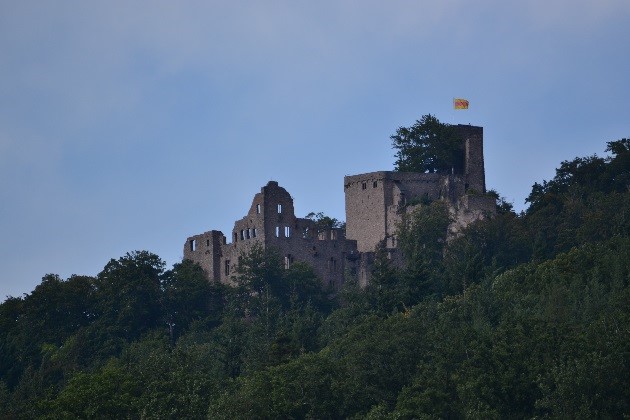
We spent our first afternoon in the elegant spa destination of Baden-Baden wandering through some of the town's superbly perfect streets and parks. Well, almost perfect, as Mary spotted one tiny piece of litter in an otherwise pristine environment (litter detection is a passion of hers). The town is evocative of a time when rich aristocrats came to gamble and take the waters. It looks like a set for a period-piece movie. The place is so perfect that even the riverbed has been paved. Every house is a mansion, and the shops are filled with luxury. The streets are lined with magnificent trees. The whole place seems fabulous and unreal.
We asked ourselves: "What have the Romans done for us?" Aqueducts, roads, education, and baths - glorious baths! Baden-Baden, which means bath-bath, is the ultimate spa town, where the Romans first built the baths, and their tradition continues until today. Three of us had to plunge into the experience of the baths, while Mary's David went off to see museums instead. At the vast domed bathhouse, filled with thermal bubbling waters and plunge pools of varying temperatures, the menu of options includes Italian water hosing, vibration training, and (luckily we hope) something called classic massage. With fingers crossed that we would be spared birch branch whipping or anything to do with hosepipes, we donned our bathers and headed for a day of sheer luxury. And it really was luxurious. My fingers can barely type after all the pampering, massaging, whirlpooling, and washing, which was interspersed with frothy cappuccinos and steam room exposure.
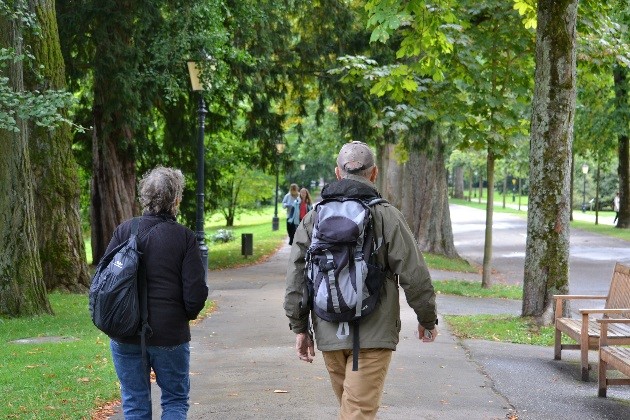
Baden-Baden
Metz, France
Thursday, September 12, 2013
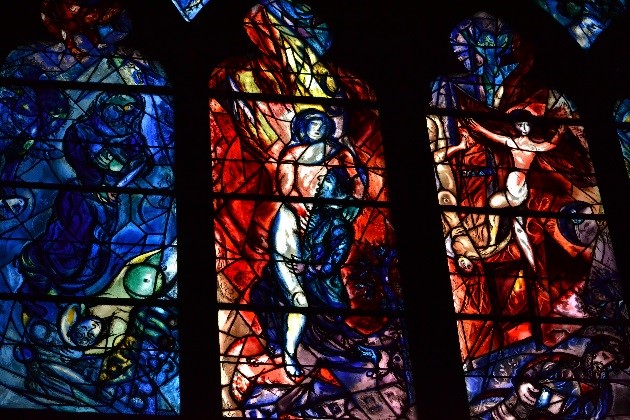
A historic garrison town, Metz is the economic heart of the Lorraine region in France. It is home to information technology and automotive industries. Metz is also home to the University of Lorraine and a center for applied research and development in the materials sector. The Lorraine region has a long history in the iron and steel industry. We walked its beautiful old medieval town center and visited its massive cathedral and wide-ranging covered market. We also took time to visit the Pompidou Modern Art Museum, which is newly open in Metz. A brilliant building and a superb exhibition on how our twentieth-century move into the sky affected our perspective and vision of art.
Metz
Laon, France
Friday, September 13, 2013
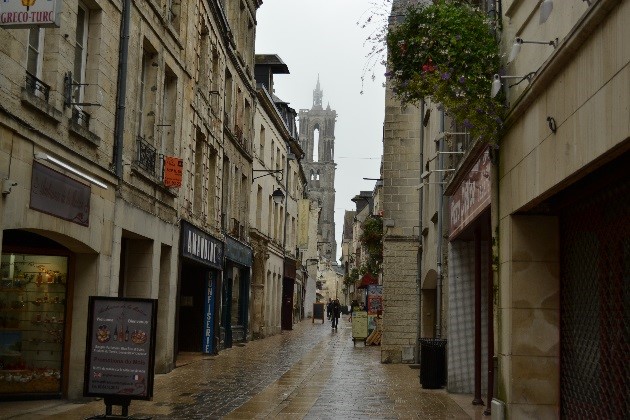
Laon is a walled city on top of a hill. The perfect place to build a fort and protect yourself. Even the Romans came here and built a fort. Our hotel manager, who is a handsome French version of Basil Fawlty, told us that the town was once the capital of France. Whether or not that is true, the place must have had some important churchmen hanging out over the centuries. The cathedral is massive and a prototype for Notre Dame in Paris. Nowadays, the ancient town seems a little crumbly and depressed, although still beautiful. The houses seem to be propping each other up like a bunch of old drunks standing shoulder to shoulder. If one goes down, the rest will follow.
This part of France seems much less polished than Germany, but it is full of character and everyday real life.
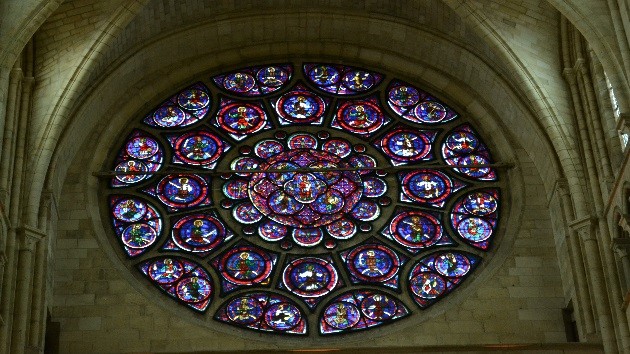
The untold story of long-term travel is laundry. In the USA, most mid-range hotels and motels have self-serve laundry facilities, but this is not so in Scandinavian countries and Germany. You can do a bit of washing in your hotel room if you are there long enough for your smalls to dry and you can find somewhere to string your drying line, but eventually, you will be faced with the big wash. At this point, you have two options: The first is to pay extortionate prices to a hotel to have your clothes washed. This costs so much that you'd be better off throwing your dirty clothes away and buying "clean" new ones. The second option is to find a coin-operated laundry. We discovered that coin-operated laundries do not exist in Scandinavia and we were able to find only one in Germany. Strangely, there are coin-operated laundries everywhere in France. We decided that the frequency of coin-operated laundries is an index of how egalitarian a society is.
The Scandinavian countries and Germany are very socially equal and therefore everyone owns their own washing machines, so there is no need for coin-operated laundries. However, France is much less classless and so there is a much higher demand for coin-operated laundries here. Who knew how important a socioeconomic indicator coin-operated laundries were?
Laon
Paris, France
Saturday, September 14, 2013
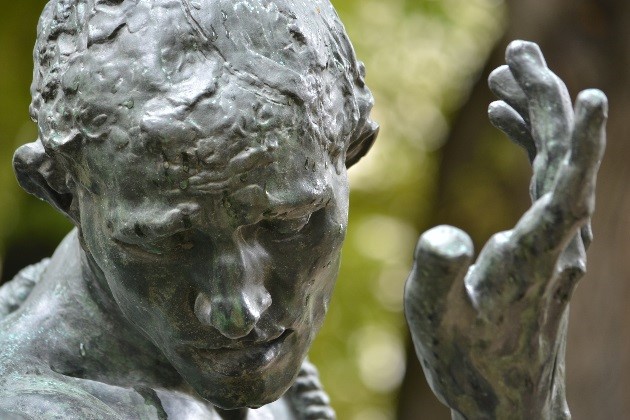
In France, chocolate croissants taste unbelievably good. Perhaps it is the creamy French butter, or the finely honed skills of pastry chefs passed down from generation to generation, or maybe the bittersweet ripple of dark chocolate that runs through the soft yet crispy dough? Whatever the reason, eating a chocolate croissant in Paris is an absolutely decadent experience of pleasure.
There are so many museums, parks, monuments, and places of interest in this wonderful and great city that it is hard to choose where to go or where to start. We made a visit to Rodin's passion-filled, genius, anguished, sculptures and bronzes as our first stop. The statues and their faces seem to be alive; to be writhing in motion.
Rodin Paris
Sunday, September 15, 2013
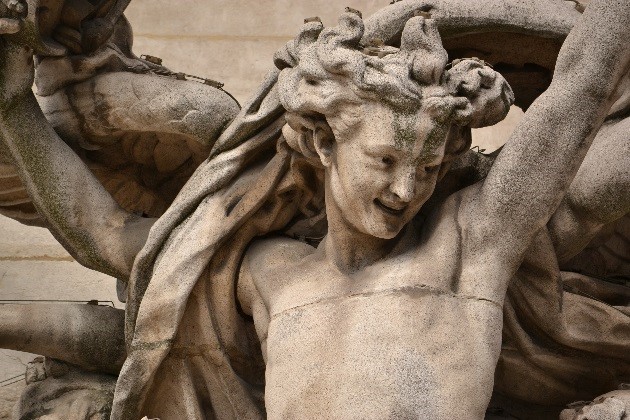
The summer is over and leaves are falling around us. We joined the Parisians on their Sunday walk along the Promenade Plantée, which follows the route of an old railway track above the streets. It took us to the Place de la Bastille, the site of the famous fortress stormed by revolutionaries on July 14, 1789.
Paris is famous for its filmmaking as well as revolution, and we saw some early cameras and film memorabilia, including Mrs. Bates's head from the film Psycho, at the Cinémathèque Française. It was interesting to see how technology, art, and the need to tell a story drove each other in early film innovation. We left the museum and walked through the endless boulevards until we were exhausted. On to the Moulin Rouge for a bit of Can-Can tonight.
Tuesday, September 17, 2013
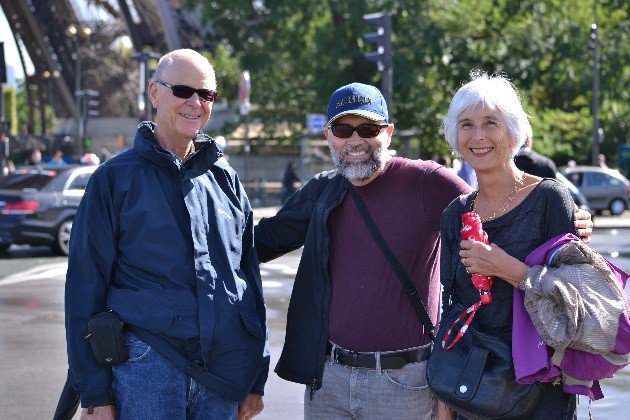
To add to our pleasure of Paris were John and Jean, who traveled via train from the south of France. We continued our exploration of the glorious city and her culinary delights together. We walked along the Seine, spent a while waiting in line for the Orangerie (where Monet's water lily paintings are housed), but then faced with an enormous line we decided to wander up the Champs-Élysées to the Arc de Triomphe instead. Paris gets 40 million visitors each year, so the top sites are mobbed by eager tourists. To avoid waiting, waiting, and waiting some more, and then getting nowhere, we realized we had to either arrive as soon as the museum/monument opens, or pick less visited sites. The Musée Carnavalet is such a place. It covers the history of Paris where you can find such things as a lock of Marie Antoinette and Robespierre's hair, keys to the Bastille, and amazing paintings and portraits of all kinds of people, kings, and revolutionaries, even the infamous Dr. Guillotine.
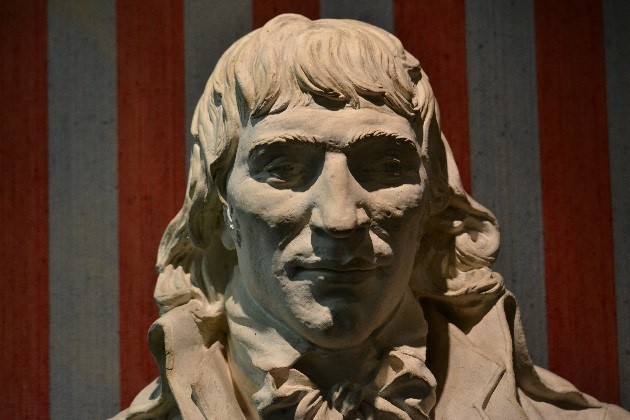
For a final glimpse into the lives of French monarchs, we went to Sainte-Chapelle, a medieval chapel that used to house the supposed Jesus' supposed crown of thorns, which was a valuable asset for one of the early King Louises.
John and Jean came equipped with restaurant reservations at bistros recommended by friends familiar with Paris. The food was scrumptious, and we enjoyed every moment. We believe that every restaurant or bar here serves gorgeous food. We wish we had time to completely test this hypothesis, but so far it has been proven 100% accurate. And there wasn't a dumpling in sight.